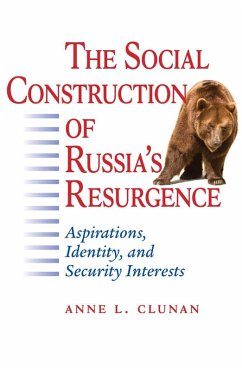Shortlisted, 2010 Jospeh Rothschild Prize in Nationalism and Ethnic Studies, Association for the Study of Nationalities.Once again, it appears that Russia is marching to the forefront of the international stage. Anne L. Clunan's analysis of Russia's resurgence convincingly argues that traditional security concerns, historical aspirations, and human agency are coalescing around a new national identity and reconfigured national interests in the post-Soviet nation. Her work moves beyond balance-of-power and realist politics to posit a new, interdisciplinary theory: aspirational constructivism.This groundbreaking theory draws on international relations research and social psychology. Clunan argues that the need for collective self-esteem creates aspirations-often based in a nation's past-that directly shape its national and security interests. In applying this theory to Russia, she points to the nation's continuing efforts to exert influence over former Soviet satellite states and relates the desire for international status found in five broad Russian national self-images-Western, statist, Slavophile, neocommunist, and nationalist-to Russia's definition of its security interests with respect to Europe, Eurasia, and nuclear weapons.Clunan's examination of how sociology, social psychology, and traditional international politics affect post-Soviet Russian identity and security concerns is truly cross-disciplinary. A concluding chapter discusses the policy implications of aspirational constructivism for Russia and other nations and a methodological appendix lays out a framework for testing the theory.
Dieser Download kann aus rechtlichen Gründen nur mit Rechnungsadresse in A, B, BG, CY, CZ, D, DK, EW, E, FIN, F, GR, HR, H, IRL, I, LT, L, LR, M, NL, PL, P, R, S, SLO, SK ausgeliefert werden.


